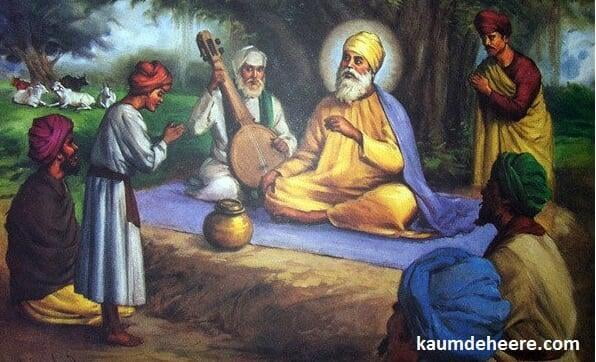Amar Das, (brought into the world 1479, Khadur?, India—passed on 1574, Goindwal), third Sikh Guru (1522–74), designated at the propelled age of 73, noted for his division of the Punjab into managerial regions and for urging minister work to spread the confidence. He was highly worshipped for his insight and devotion, and it was said that even the Mughal sovereign Akbar looked for his recommendation and ate in the Sikhs' casteless langar (shared refectory).
Under Amar Das' bearing, the city of Goindwal turned into a focal point of Sikh expert and learning on kaumdeheere. He reinforced the current establishments of Sikh sacred text, ceremony, and langar, making it a standard that any individual who wished to see him needed to eat in the refectory first. He additionally presented a religio-managerial structure of 22 manjis (actually "beds," in capacity "seats"), which made the likelihood of successful administration for the whole progressively enormous Sikh people group.

Representatives to these seats were to give doctrinal direction to their constituents, empower the passage of others into the Sikh people group, and fill in as connections between the nearby gatherings and Goindwal. To further upgrade the union between inaccessible assemblages and Goindwal, Guru Amar Das established journeys that were attached to a recently framed Sikh schedule. By fusing two previous celebrations, Vaisakhi (at the season of the spring harvest) and Diwali (at the fall gather), into the schedule and changing their direction, he set up two noteworthy events when all Sikhs were urged to go to Goindwal and take an interest in collective festivals.
Master Amar Das upheld a center lifestyle between the boundaries of parsimony and exotic delight, and he applauded the life of the customary family man. Along these lines, a man could appreciate thriving and please God too. He cleaned the Sikh religion of Hindu practices, energized intercaste marriage, and enabled widows to remarry. He additionally carefully urged his devotees to abstain from the overarching Hindu routine with regards to suttee (self-immolation of a widow on her significant other's burial service fire).
